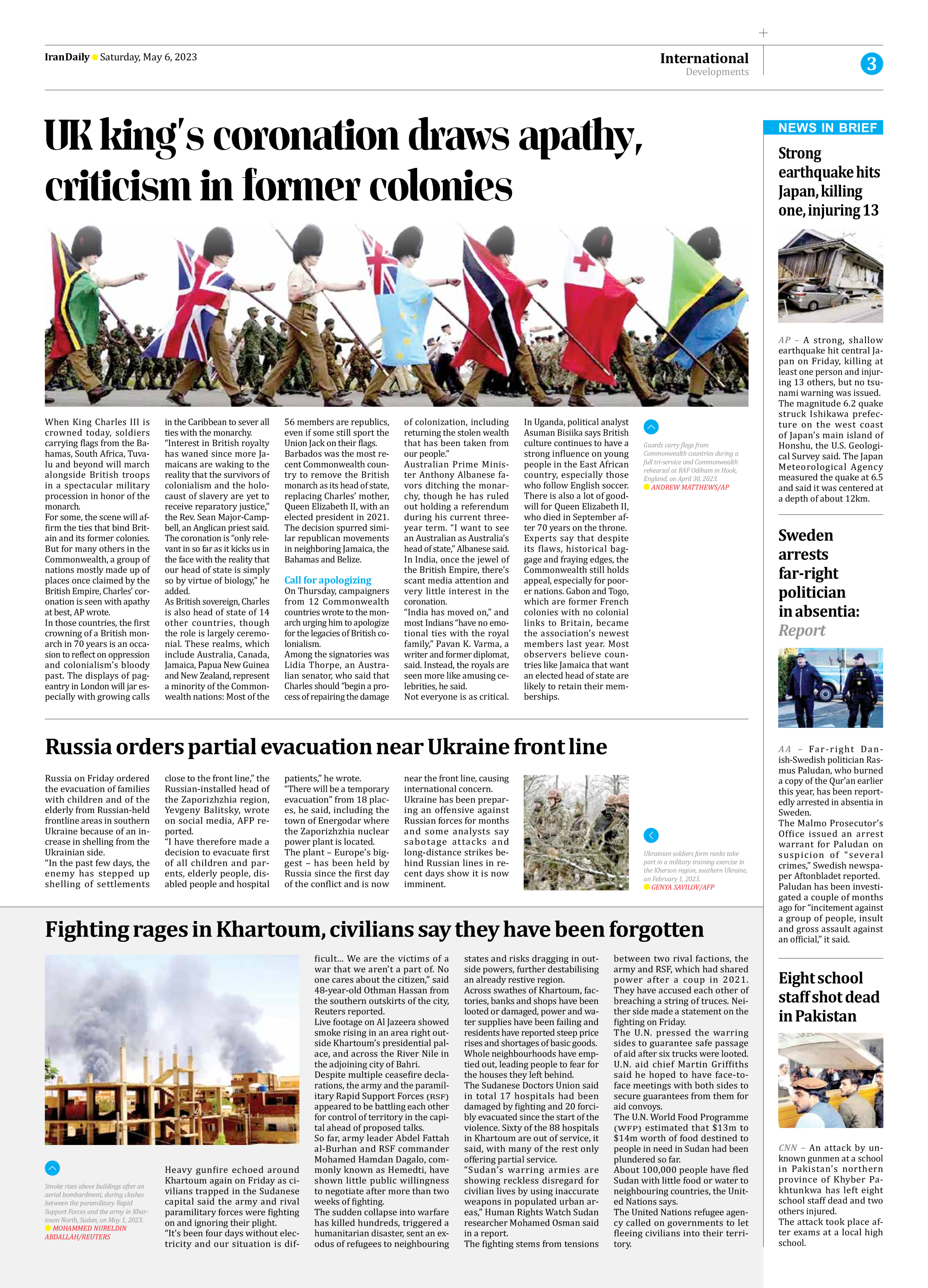
UK king’s coronation draws apathy, criticism in former colonies
When King Charles III is crowned today, soldiers carrying flags from the Bahamas, South Africa, Tuvalu and beyond will march alongside British troops in a spectacular military procession in honor of the monarch.
For some, the scene will affirm the ties that bind Britain and its former colonies. But for many others in the Commonwealth, a group of nations mostly made up of places once claimed by the British Empire, Charles’ coronation is seen with apathy at best, AP wrote.
In those countries, the first crowning of a British monarch in 70 years is an occasion to reflect on oppression and colonialism’s bloody past. The displays of pageantry in London will jar especially with growing calls in the Caribbean to sever all ties with the monarchy.
“Interest in British royalty has waned since more Jamaicans are waking to the reality that the survivors of colonialism and the holocaust of slavery are yet to receive reparatory justice,” the Rev. Sean Major-Campbell, an Anglican priest said.
The coronation is “only relevant in so far as it kicks us in the face with the reality that our head of state is simply so by virtue of biology,” he added.
As British sovereign, Charles is also head of state of 14 other countries, though the role is largely ceremonial. These realms, which include Australia, Canada, Jamaica, Papua New Guinea and New Zealand, represent a minority of the Commonwealth nations: Most of the 56 members are republics, even if some still sport the Union Jack on their flags.
Barbados was the most recent Commonwealth country to remove the British monarch as its head of state, replacing Charles’ mother, Queen Elizabeth II, with an elected president in 2021. The decision spurred similar republican movements in neighboring Jamaica, the Bahamas and Belize.
Call for apologizing
On Thursday, campaigners from 12 Commonwealth countries wrote to the monarch urging him to apologize for the legacies of British colonialism.
Among the signatories was Lidia Thorpe, an Australian senator, who said that Charles should “begin a process of repairing the damage of colonization, including returning the stolen wealth that has been taken from our people.”
Australian Prime Minister Anthony Albanese favors ditching the monarchy, though he has ruled out holding a referendum during his current three-year term. “I want to see an Australian as Australia’s head of state,” Albanese said.
In India, once the jewel of the British Empire, there’s scant media attention and very little interest in the coronation.
“India has moved on,” and most Indians “have no emotional ties with the royal family,” Pavan K. Varma, a writer and former diplomat, said. Instead, the royals are seen more like amusing celebrities, he said.
Not everyone is as critical. In Uganda, political analyst Asuman Bisiika says British culture continues to have a strong influence on young people in the East African country, especially those who follow English soccer. There is also a lot of goodwill for Queen Elizabeth II, who died in September after 70 years on the throne.
Experts say that despite its flaws, historical baggage and fraying edges, the Commonwealth still holds appeal, especially for poorer nations. Gabon and Togo, which are former French colonies with no colonial links to Britain, became the association’s newest members last year. Most observers believe countries like Jamaica that want an elected head of state are likely to retain their memberships.







